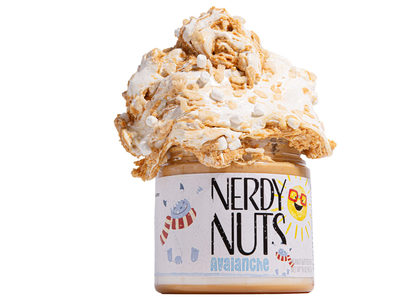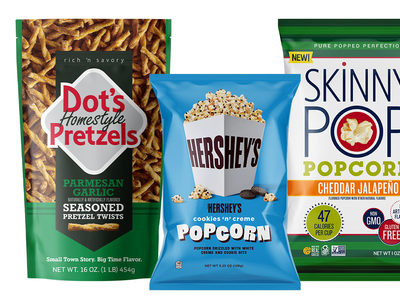KANSAS CITY — A good percentage of consumers say they want sustainable packaging, and food companies include packaging in their sustainability goals. Options appear in post-consumer recycled (PCR) content, compostable packaging and recycling instructions for consumers, but hurdles pop up in cost and desired shelf life.
Cypress Research Associates, LLC, Kansas City, last year conducted a study for Baking & Snack, a sister publication of Food Business News, on sustainability commitments within the baking industry. The study involved 131 industry professionals from baker and supply companies. Among the findings, 62% of wholesale bakers and 61% of ingredient suppliers said they were engaged in sustainable packaging, which ranked ahead of total US manufacturing at 54%.
An April report from 84.51° found 19% of shoppers said they frequently seek sustainable products, and 22% said they find sustainability “very important” when choosing products to purchase. Another 37% said they avoid single-use plastic packaging.
Breaking the study into categories, 28% said they seek sustainable products when purchasing deli products, and 16% said snacks and cereal. The top two categories were 59% when purchasing paper products and 55% when purchasing household cleaners, according to 84.51°, which provides data on how sustainability concerns drive consumers’ shopping choices and habits to the Kroger Co., Cincinnati, and its customers.
Recycled bread bags
In baking, St. Johns Packaging, Saint-Jean-sur-Richelieu, Que., has developed bread bags containing 30% PCR content.
“The incorporation of PCR content is key in the circular economy,” said Veronica Ataya, director, marketing and innovation. “It helps reduce the carbon footprint of the packaging and helps keep plastics in the loop, reducing the need for virgin materials.”
The bags perform similar to traditional bags, according to St. Johns Packaging.
“There are some negative effects that come with the use of mechanically recycled resins, but we have modified our film recipes to ensure bag performance is not affected and that bakeries don’t have to make adjustments in their packing lines,” Ataya said.
Bags containing PCR content are more expensive than traditional bags.
“However, we recommend targeting premium product lines where consumers might be more willing to pay a premium for a more sustainable packaging option,” Ataya said.
Mechanically recycled resins, although they carry a lower carbon footprint than virgin resins, still generate emissions since the material needs to go through certain steps in the recycling process.
“We have some estimations showing that using 30% PCR content in bread bags would reduce carbon footprint by around 10% to 20%, but this depends on many factors, including production facilities and shipping locations,” Ataya said.
Many sustainability commitments, including those from the Ellen MacArthur Foundation and the U.S. Plastics Pact, have 30% PCR content as a goal, she said.
“It is possible to go higher, but there might be a limit at around 50%,” Ataya said. “Beyond that, the mechanical properties of the packaging could be compromised. Recycled resins have a lower mechanical performance than virgin resins, and limiting the content in the final product can help prevent issues in downstream processing.
“Furthermore, there isn’t enough supply of recycled resin for everyone to incorporate a higher recycled content. If every company wanted to use 30% PCR content today, that would not be possible.”
Bimbo Bakeries USA, Horsham, Pa., a subsidiary of Grupo Bimbo SAB de CV, in October 2023 introduced a bread bag under the Arnold brand in North America that uses 30% PCR content. SCS Global Services, a testing, inspection and certification company based in Emeryville, Calif., certifies and tests the bags.
Novolex, Hartsville, SC, in 2023 launched packaging containers that are recyclable and made with a minimum 10% PCR content. They include various sizes of cake containers, bakery clamshells, dessert cups and tamper-evidence containers.
Instructing consumers
London-based Treetop Biopak offers home compostable bags to address the environmental impact of plastic bread bags. The bags compost once they are discarded correctly without leaving any microplastics or pollutants behind. Microorganisms and bacteria in the compost consume compostable bioplastic, said Amir Gross, who founded the company in 2020. The bags have achieved a shelf life of 7 to 10 days with sliced bloomer and sourdough bread.
“Any company that uses compostable packaging should shout about it to its customers,” Gross said. “It should let them know of the effort and investment it is doing to protect the environment. It is also important to inform them the packaging is compostable and should be disposed of correctly. This should be done through print on the pack as well as through other marketing activities.
“To customers who would like to give more information to customers, we suggest to print a small QR code on the pack that will refer the customer to information about composting and the product.”
Compostable bioplastic materials naturally have low barrier properties since they are made of shorter chains that break more easily, he said.
“That is the nature of the material, and in many applications that is absolutely fine, but the low barrier is a challenge with certain types of bakery items, such as bread, because the humidity causes them to go stale quickly,” Gross said. “With our new material we manage to adjust the formula to increase the barrier.”
Compostable packaging costs more than plastic packaging with the extra cost depending on factors like size pack and volume.
“This needs to be taken into account with other considerations such as sustainability, value for brand, regulations and how this will be preserved by consumers,” Gross said. “For short shelf-life products, we can use the single layer material. If longer shelf life is needed, we can provide high barrier laminates, which allow extended shelf life.”
Treetop Biopak may ship to any country.
“After the shock of COVID, prices of shipping have come back down, and we can ship competitively to anywhere, even low volumes,” Gross said. “I am working on a number of projects in North America in the fresh produce market, bakery and e-commerce.”
Gross began in the industry by working with ridged plastic manufacturers in the United Kingdom, supplying food and non-food industries.
“I have been very passionate about compostable packaging since I started working in the field in 2018,” he said. “During this time, as pressure to replace plastic grew, many new innovations came to the market, such as stretch film, shrink film, high-barrier laminates and more. I noticed there was a gap between innovation and the market, which is what Treetop Biopak is about.”




